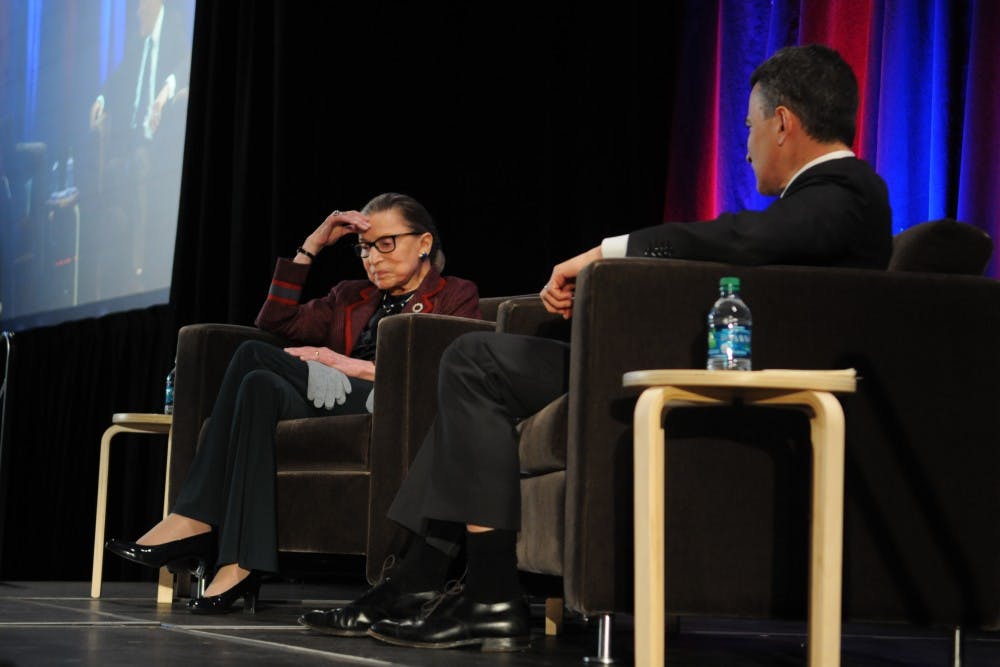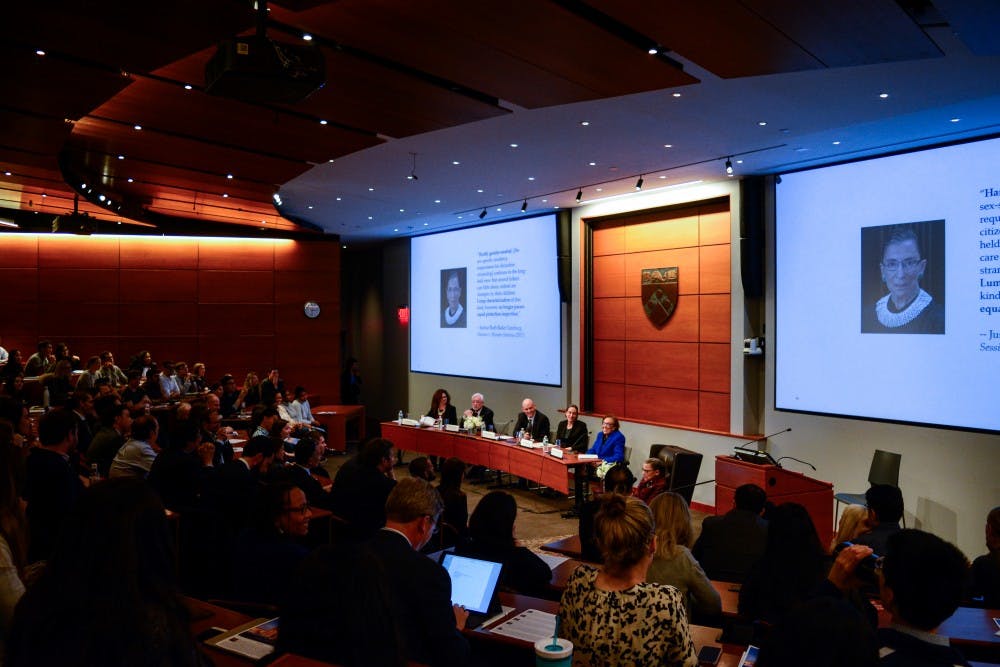
Associate Justice Ruth Bader Ginsburg was honored by Penn Law School on Monday, in celebration of her 25 years of service on the Supreme Court.
Her visit was split into two events. The first, a Penn Law symposium, was held on campus in the Michael A. Fitts Auditorium during the early afternoon. There, Ginsburg fielded questions from law students and a five-person panel consisting of two judges, a Penn professor, a prominent women's rights advocate, and a journalist shared their memories of the justice with the crowd and commemorated her career.

The second appearance was held in the National Constitution Center at 525 Arch St. where Ginsburg was honored as the annual Owen J. Roberts Memorial Lecturer with Penn Law.
At both events, Justice Ginsburg offered glimpses into her career in law and weighed in on contemporary issues such as the #MeToo movement, the national political climate, and her hopes for future generations.
At the first event, one panelist, John Owens, a circuit judge for the United States Court of Appeals for the Ninth Circuit, clerked under Justice Ginsburg in the late 1990s and marveled at her work ethic.
“I’ve never met someone who tries so hard to get to that right answer,” Owens said. “To see how hard she works is very inspiring.”
The #MeToo movement has been a prominent topic in Ginsburg's recent public appearances. She offered support for the movement, while expressing her desire that change affected by the movement help people at all levels of society.
“I do hope it will not be just Hollywood stars and other prominent people, that it will go down to the maids in the hotel,” Ginsburg said. “I’m hopeful this movement will succeed in stopping something that should’ve been stopped a long time ago.”

During the evening lecture, Ginsburg recounted one of her own encounters with sexual assault as an undergraduate at Cornell University where a teaching assistant offered her an edge on an exam in exchange for sexual favors.
“I confronted him and said, ‘How dare you do this?’ It’s just one of the many stories women of my vintage have experienced.”
Asked about whether or not the momentum of the #MeToo movement will translate into new legal precedents, she replied, “The laws were always there, it takes people to use them.”

When the moderator of the second event Jeffrey Rosen, who is the president and CEO of the National Constitution Center, steered the conversation toward the national political climate, Ginsberg offered the advice that her mother-in-law gave to her on her wedding day decades before:
“In every good marriage it helps, sometimes, to be a little bit deaf,” Ginsberg counseled. “And that is advice that I have applied to 56 years of marriage, and more recently in my current workplace.”
When Ebenezer Gyasi, a second-year Penn Law student, questioned her during the earlier appearance about what made her positive about the United States in the long run, Ginsburg responded optimistically.
She recalled her time as a college student — when the Red Scare gripped the country and civil liberties were at risk — and said the country “got over that period.”
Ginsburg added that she believes the new generation of Americans to be a force of change, noting that she was heartened by the recent Women's March following the presidential election.
“If liberty dies in the hearts of the people then no court can restore it,” she said during her closing statements, “but I have faith in this generation.”
The Daily Pennsylvanian is an independent, student-run newspaper. Please consider making a donation to support the coverage that shapes the University. Your generosity ensures a future of strong journalism at Penn.
Donate



